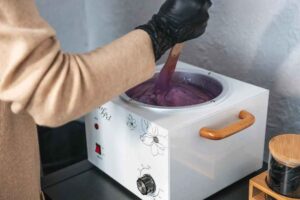Overview Of Alcohol Addiction Treatment Options

Alcohol addiction recovery is complex. Today, there is a clear understanding that treatment for any addiction is multifaceted and must consider all the needs of the whole person, that is to say, on a cognitive, behavioral, and emotional level. Finding the right path for treatment is an individually-led decision, but there are tried and true methods in place that can guide a person toward a plan for lasting recovery.
Many people are familiar with addiction support groups, like 12-step meetings and Alcoholics Anonymous. While these are certainly incremental to recovery, many other factors contribute to a lasting holistic recovery. For a lasting recovery, treatment must span beyond addiction recovery support groups. In fact, it is often necessary for a period of hospitalization as well as an aftercare plan to be put in place when a person is beginning sobriety.
Below, we will discuss a general overview of the many alcohol addiction treatment options that are available today. With the information presented, you can consider which approaches feel the most aligned with your needs and can discuss these options with your doctor to decide on the best path forward. Read on for an overview of successful options for the treatment for alcohol addiction.
The treatment for alcohol addiction is a holistic process.
A combination of psychological, medical, and social treatment components allows an individual to consider all aspects of self that influence their alcohol addiction. A holistic treatment approach will combine these factors as well as the level of care that is necessary at the given time. Individuals requiring higher levels of care can consider admission to either a traditional or luxury alcohol rehab center to begin treatment for alcohol addiction.
During the initial assessment, you may be presented with recommendations for the best choice for you and where you are in your recovery at that time. If you have made enough progress, you may also qualify to take part in an outpatient program, which does not require temporary living on hospital or center grounds. Individuals may progress through the levels of care depending on their progress with treatment.
Behavioral therapies and groups differ but are all effective.
Behavioral therapies and support groups are additional components to one’s treatment for alcohol addiction, and they can immensely encourage an individual’s recovery. Various behavioral therapies are introduced, including cognitive behavioral therapy, dialectical behavioral therapy, as well as self-help groups like 12-step meetings and DBT support groups. While the approaches to therapies differ from one another, they are the same in the sense that the individual is encouraged to take radical responsibility for their addiction, their treatment for alcohol addiction, and the lifestyle changes that support their recovery.
Work towards a brighter future with professional care.
Work towards a brighter future by contacting a detox center today.
Recovery is possible with the right tailored treatment for alcohol addiction and support. If you or a loved one is struggling with alcohol addiction, contact a treatment facility with professional care providers to begin taking action toward a brighter future.






